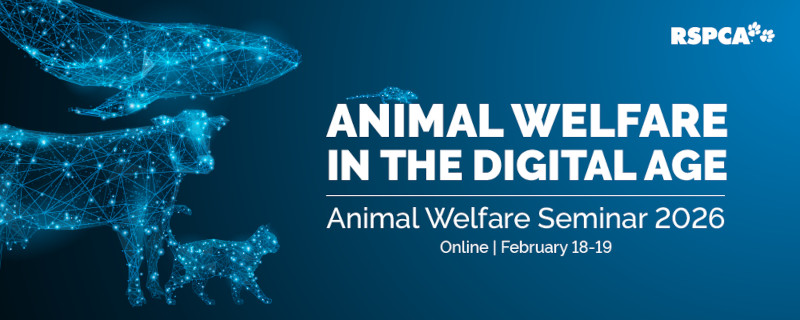In Tasmania, farmed Atlantic salmon may be vulnerable to attack by seals and sea birds.
Maintaining good fish welfare by protecting farmed Atlantic salmon from predators, such as seals and sea birds is critical to the RSPCA Approved Farming Scheme standards. Fish are vulnerable to stress, injuries and mortalities as a result of interactions with predators.
The RSPCA believes that exclusion measures, both above and below the water, must be the primary method of preventing seals and sea birds from attacking salmon. Over recent years pen net technology has become very sophisticated and is more effective in keeping predators out and fish safe.
With these improvements in pen security, seals usually only get access to the salmon pen if there has been damage to the netting, most often caused by storms. Birds, often cormorants, sometimes find their way through holes or become ensnared in the netting. Birds that get inside the pen have places they can perch and sometimes find their own way out through specially placed ‘bird escape holes’.
Salmon farms are subject to hundreds of seal interactions each year with seals capable of biting fish through the pen nets, jumping into pens, ripping holes in the netting and sometimes threatening staff. At the same time, safeguarding the welfare of seals and other predators is important.
The RSPCA Approved Farming Scheme Standards – Farmed Atlantic Salmon, prohibits the use of seal scarers, pingers, and capsicum spray.
Where seals have been able to breach a pen’s outer netting and are causing harm or distress to fish, seals must be given the opportunity to swim out of the pen on their own accord. This is done by lowering outer nets.
In instances where seals don’t swim out of pens on their own and as a last resort to protect fish welfare, the RSPCA Approved Farming Scheme permits the limited use of crackers to deter or remove the seal (or seals) from the marine pen as quickly as possible. If a seal or seals inside the pen do not voluntarily swim out after lowering of the nets, crackers can be dropped in the water nearby so that the seal swims away from the flash/noise and out of the pen. The number and timing of cracker use is significantly below that permitted by the Tasmanian Government which allows ten crackers, three seal scare caps and three beanbags to be deployed towards any one fur seal in a fish containment pen within a six-hour period.
There is very limited research available on the immediate and longer-term effects of deterrent devices on seal welfare. The RSPCA urges the Tasmanian Government and the salmon farming industry to invest in this area, research alternative deterrent methods, and phase out the use of crackers, bean bags, and scare caps. The RSPCA will continue to strongly advocate for animal welfare improvements, including through participation in the review of the Seal Management Framework and the development of new Wildlife Interactions Standards which the Tasmanian Government has committed to in the Tasmanian Salmon Industry Plan 2023.
To learn more about the RSPCA Approved Farming Scheme or to download the Standard visit our website.

